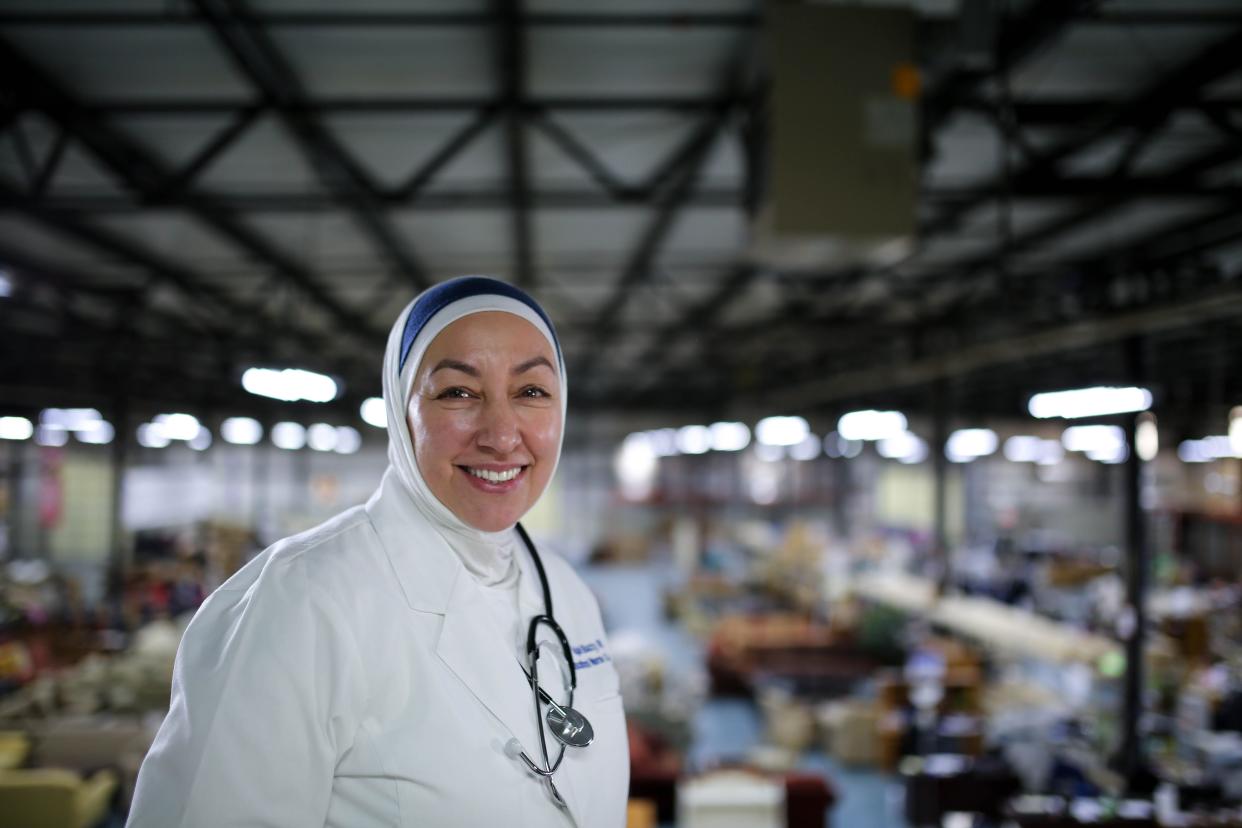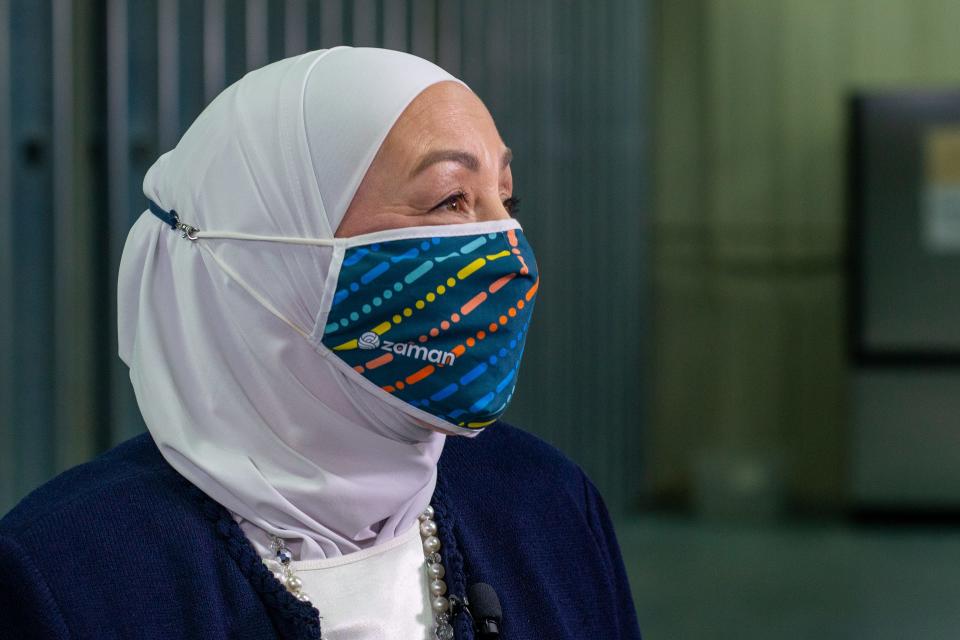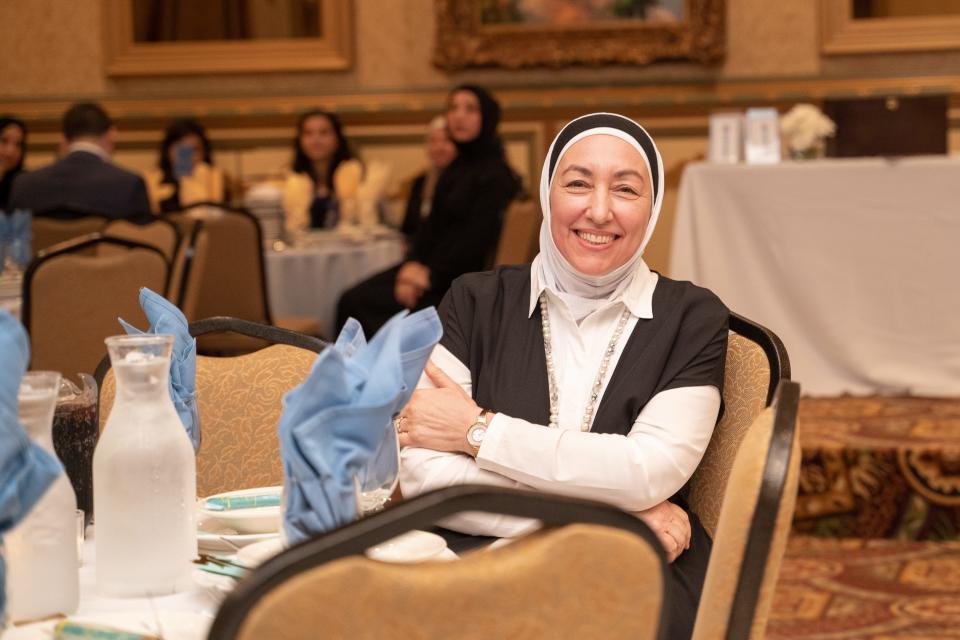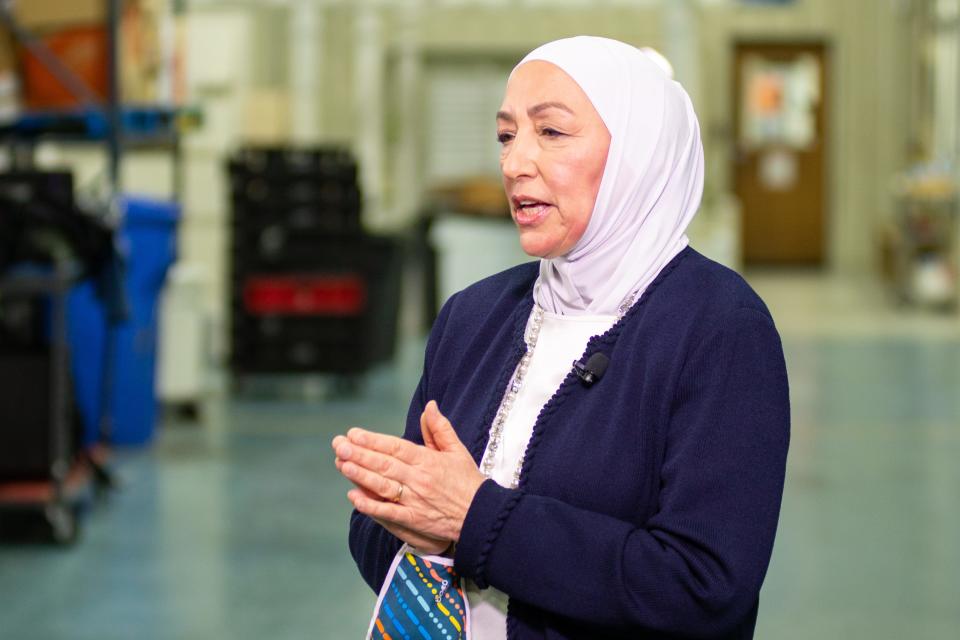Humanitarian, interfaith leader named USA TODAY’s Women of the Year honoree from Michigan

Najah Bazzy is one of USA TODAY’s Women of the Year, a recognition of women who have made a significant impact in their communities and across the country. The program launched in 2022 as a continuation of Women of the Century, which commemorated the 100th anniversary of women gaining the right to vote. Meet this year’s honorees at womenoftheyear.usatoday.com.
While many recognize Najah Bazzy for her roles as a humanitarian and interfaith leader, there's so much more to her than that.
Born in southeast Michigan, Bazzy’s career began after she earned her nursing degree from Madonna University. From there, she spent over three decades working in critical care and transcultural nursing, drawing from her personal experiences as a child to help those in need.
Bazzy has served as CEO of Diversity Specialists and an adjunct professor at Michigan State University’s Institute of International Health and also co-founded the Young Muslim Association, where she still serves as a senior adviser for the organization.
She is widely regarded as a leader in Muslim healthcare and ethics and has drawn from her personal experiences to provide diversity and transcultural trainings to the United States Army, the United States Department of Justice, the International Red Cross and more.
Bazzy also founded and serves as CEO of Zaman International, a needs-based organization that helps households meet their basic needs, breaking the cycle of poverty by providing food, clothing, shelter and more to women, children, seniors and the terminally ill.
Bazzy, who has drawn on her life experiences to stand for justice and help those in need with love and compassion, has been selected as the Michigan honoree for USA TODAY's Women of the Year.
This conversation has been edited for length and clarity.

Is there a person in your life who has paved the way for you?
There have actually been three: my grandmother, my mother and my aunt. I think there's always more than one influence in life and I picture them as three lanes merging onto one highway. My grandmother in the sense that she was essentially a single mother raising their children. As immigrants, they came all the way to the United States on a boat. The impact she had on me was not only the love of a matriarch, which I really try to model, but also her appreciation for freedom. That never leaves me.
From my mom, I learned resilience. My mother suffered a lot as a young girl with a lot of trauma, but she also gave birth to my brother, who has muscular dystrophy, and has raised him for 67 years. I really learned that essence of motherhood through her in a very profound way. I grew up with a keen sense of those who don't have, can still give to those who don't have.
The last is my aunt, who I credit a tremendous amount. She lived through the riots in Detroit and the racial wars that were going on in the '60s. She was the neighborhood mom when I was growing up and I always really wanted to be that person. I feel like I am truly the culmination of all three of them.
From a business or career perspective, is there someone you’ve tried to pattern your life after?
It really would have to be one of my saints. Her name is Zainab and she's definitely a saint to me, but maybe not for everyone in the Muslim world. She's the granddaughter of the prophet Mohammad. She lost everything that a human being could lose. She watched her children, her brothers, her family members literally slaughtered in the land we now call Iraq.
Zainab was a social justice person. She survived one of the greatest tragedies in human history and she had to stand up against the tyrant of her time who murdered her family. The way she delivered the most eloquent speech and brought down an entire dynasty, the way she did that with the eloquence, the class, the resilience, the passion, the truth and the love, the way she did that, it lives in me.

What sort of adversity have you overcome?
I think about 9/11 because I was in full fledged form when it happened. I was at the peak of my nursing career, I was developing what we now call diversity, equity and inclusion, but back then I was ahead of the game. I was teaching hospital systems how to integrate culturally competent care and spiritually sensitive care.
When 9/11 happened, I’m in my hijab, and there were people who were normally open and loving and teachable in the sense that what I had to say really mattered to them, and the hospital system was really willing to embrace this idea of patient satisfaction. When 9/11 happened, you could see people who would usually hug me in the morning turn around.
I would fly on an airplane and have to smile because I wanted people to see my smile and not my hijab. It was a very difficult time where the idea was that Muslims were terrorists. I thought to myself, I am going to push through this.
What is your definition of courage?
It's the ability to stand up against the flow. When everyone is going one way, I chose to go the other. I don’t like standing still.

When you look back on your career, what are you most proud of?
From a career perspective, I think I'm most proud of lifting the nursing profession. My proudest moments are when I’m teaching physicians and they're actively listening. The culture of the field has always been a hierarchy and I've been able to gain the respect of physicians and healthcare providers who accept there might be an alternative way to think about care.
What advice would you give to your younger self?
I’ve learned that everything is interdependent and the only thing that's independent is God. It's taught me humility in leadership because we all have to work together. I used to be very hard on myself, always thinking that I had to do everything. Today I know that's not true. Today it’s that WE have to do this.
2022 Women of the Year: Dr. Joneigh Khaldun on adversity, leading public health through a pandemic and being a role model
Women of the Century: GM CEO Mary Barra, singers Diana Ross and Aretha Franklin among inspiring women on Michigan list
This article originally appeared on The Holland Sentinel: MSU professor, Muslim healthcare leader honored by USA TODAY

